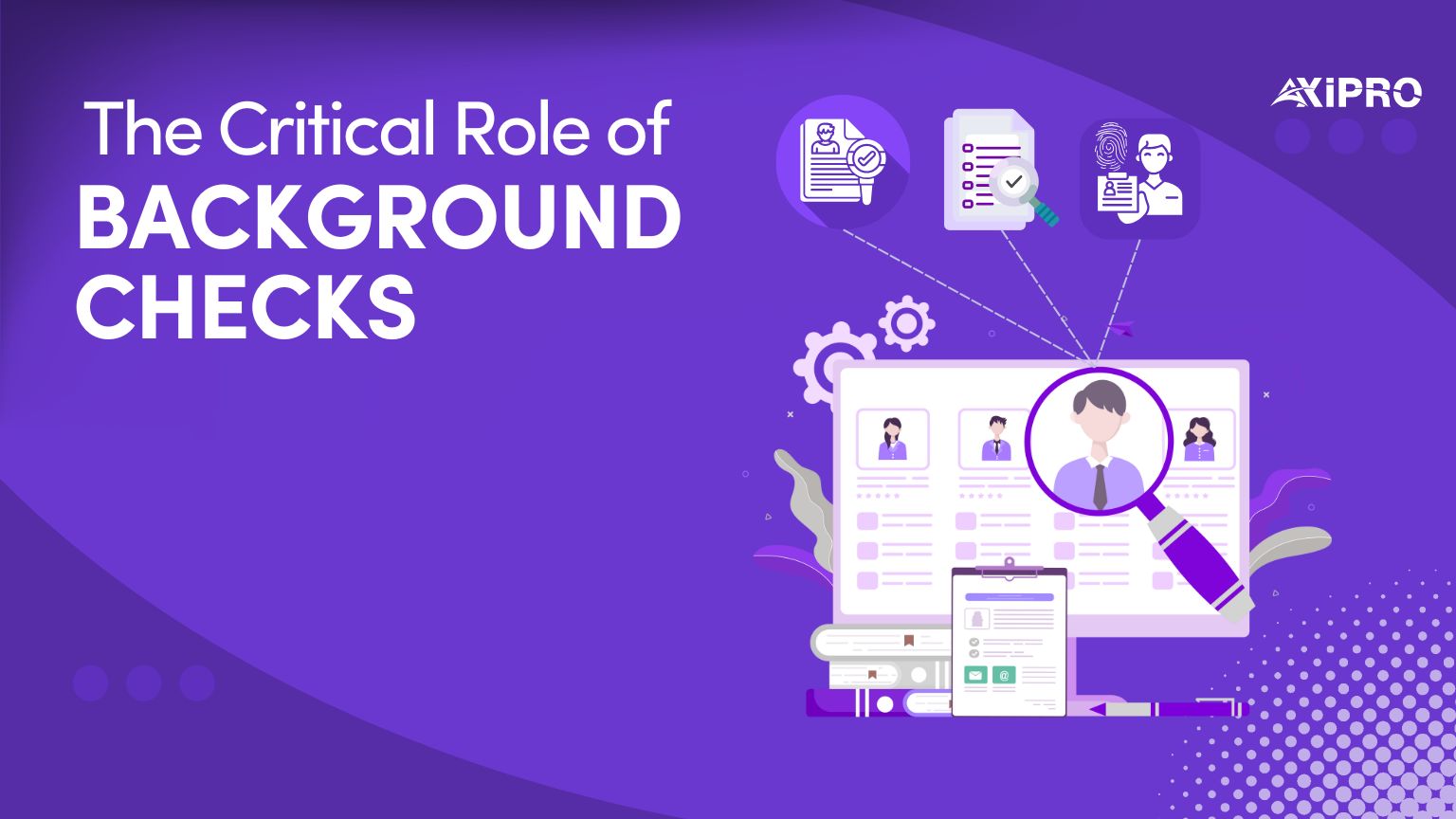
Share This Post
Hiring qualified and trustworthy personnel is fundamental to any organization’s success and security. Background checks are an essential control, ensuring that new hires meet the necessary standards of integrity and suitability for their roles. At Axipro Technology, we understand that compliance should be integrated seamlessly into your operations, supporting a robust, secure, and reliable workforce.
Our Project Manager, Abeera Zainab, breaks down the critical role of background checks and why they’re essential for a secure and compliant workforce. 📢 Watch the video here!
The Strategic Importance of Background Checks
- Informed Hiring Decisions: Background checks enable organizations to verify critical credentials, ensuring that candidates possess the required qualifications and experience. This reduces the risk of negligent hiring and enhances the overall quality of the workforce.
- Reputational Risk Management: A single unsuitable hire can significantly damage an organization’s culture, customer trust, and overall reputation. Comprehensive background checks mitigate these risks proactively.
- Regulatory Compliance: Many industries are subject to stringent regulations mandating employee background verification. Conducting these checks ensures adherence to legal and regulatory requirements, avoiding potential penalties and liabilities. This is particularly relevant for standards like ISO 27001 and SOC 2, which emphasize personnel security.
Essential Background Checks for Compliance
To maintain a secure and compliant workforce, organizations should, at a minimum, conduct the following checks:
- Employment Verification: Contact previous employers to validate job titles, employment dates, and reasons for leaving. This confirms the accuracy of the candidate’s work history and identifies any discrepancies.
- Education Verification: Verify academic credentials directly with educational institutions. This authenticates degrees, certifications, and other relevant qualifications, ensuring the candidate meets the required educational standards.
- Identity Verification: Confirm the candidate’s identity using government-issued documents (e.g., driver’s license, passport). This prevents identity fraud and ensures compliance with legal requirements.
Additional Background Checks (Risk-Based)
Depending on the specific role, industry regulations, and the organization’s risk assessment, additional checks may be necessary:
- Credit History Check: Assess an individual’s financial responsibility, particularly for roles involving financial transactions, access to sensitive financial data, or fiduciary duties. This is often required for compliance in financial sectors.
- Criminal Record Check: Review an individual’s criminal history at the local, state, and federal levels. This helps ensure workplace safety, mitigate potential risks, and comply with industry-specific regulations.
Methods for Conducting Background Checks
For an efficient and compliant process, we recommend leveraging established background check providers such as Checkr and Vetty. These platforms offer:
- Integration with Compliance Frameworks: Seamless integration with compliance management solutions like Drata and Vanta, facilitating streamlined tracking and management of background verification within a broader security and compliance program.
- Automated Compliance: These providers are designed to adhere to relevant regulations (e.g., FCRA, GDPR), reducing the administrative burden on your organization.
Organizations may also choose to conduct manual background checks for specific roles or situations requiring enhanced due diligence.
Integrating Background Checks into Your Compliance Program
Implementing a structured background check process is a crucial step toward establishing a secure and compliant workplace. This process should be:
- Policy-Driven: Defined by a clear, documented policy outlining the scope, procedures, and responsibilities for background checks.
- Consistent: Applied consistently to all candidates for similar roles.
- Legally Compliant: Conducted in accordance with all applicable laws and regulations.
- Documented: All findings and decisions should be thoroughly documented and securely maintained.
Moving Forward
Integrating robust background checks into your hiring process helps your organization make informed decisions, mitigate risks, and maintain compliance with relevant standards and regulations.



